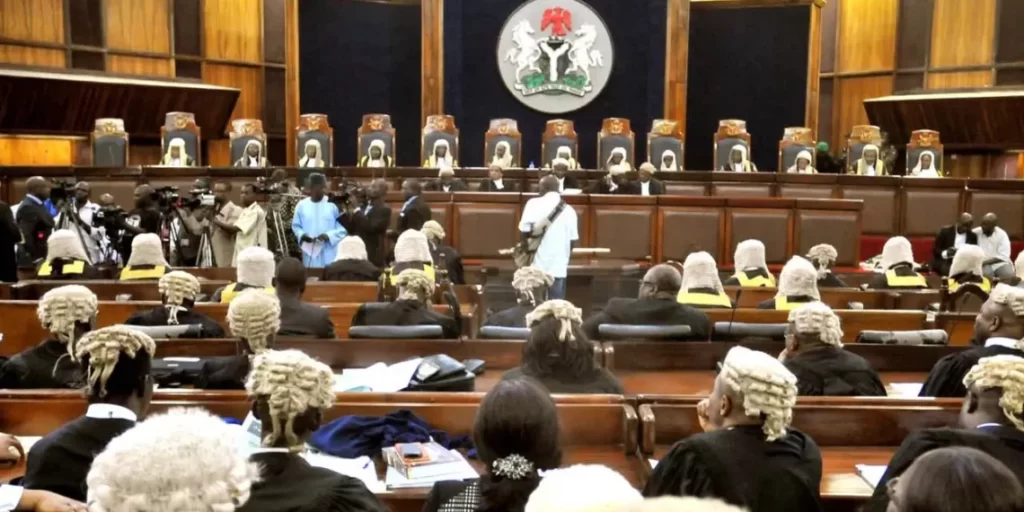IRev’s failure might erode public confidence in INEC – Supreme Court declares
The Supreme Court has expressed concerns that the malfunctioning of the Result Viewing (IReV) portal of the Independent National Electoral Commission (INEC) has the potential to erode the public’s confidence in the electoral process. Justice John Okoro conveyed this sentiment on Thursday while delivering the primary judgment in the appeal brought by Atiku Abubakar, the presidential candidate of the Peoples Democratic Party (PDP).
Atiku, along with Peter Obi, the candidate from the Labour Party (LP), contested the victory of Bola Tinubu, the then-candidate of the All Progressives Congress (APC), in the February 25, 2023, election, taking their case all the way to the Supreme Court after being dissatisfied with the verdict of the Presidential Election Petition Tribunal (PEPT) in September.
In their appeal, Atiku and Obi sought the annulment of Tinubu’s election on various grounds, including double nomination, alleged certificate forgery, failure to electronically transmit results, and the requirement for 25% of votes in the Federal Capital Territory (FCT).
However, on Thursday, the Supreme Court dismissed all of the appeals on the basis of lacking merit.
Regarding the malfunctioning IReV, Justice Okoro’s panel asserted that the absence of election results on the IReV portal was not a valid reason for nullifying the February 2023 presidential election. He referred to Section 135 (1) of the Electoral Act 2022, which stipulates that the election cannot be invalidated solely due to non-compliance with electronic result transmission.
Justice Okoro explained, “From the provisions of the Act stated above, it is crystal clear that the petitioner (Atiku) seeking to nullify the election on the grounds of non-compliance must not only lead evidence to prove the non-compliance but must also demonstrate to the court how the non-compliance significantly affected the election’s outcome.”
The justice pointed out that the appellants failed to fulfill their duty of presenting credible evidence to prove non-compliance. Instead, they relied solely on the failure of INEC to transmit results in real-time to the IReV portal.
Citing the case of Oyetola vs. INEC, the Supreme Court concurred with the lower court’s view that the IReV portal serves as a result viewing center rather than a collation center.
Justice Okoro clarified, “While the election system involves multiple centers where results are collated at various stages of the election, the INEC result viewing portal is designed to allow the public to view polling unit results on election day. This means that when the IReV portal experiences technical issues, it does not impede the collation of results, which was traditionally done manually.”
The justice affirmed that the Electoral Act grants INEC the authority to determine the electronic device used during elections. Consequently, the absence of election results on the IReV portal does not provide grounds for nullifying the February 2023 presidential election.
Subsequently, the panel rejected the appeals of both Obi and Atiku, confirming Tinubu’s victory in the February 2023 election.








More Stories
Teenager in viral photo of Obi’s 2023 presidential campaign rally, Alabi Quadri languishes in jail
Ribadu tells families of kidnapped victims not to pay any ransom
Ozigbo rejects Anambra APC guber primary, calls it a theft